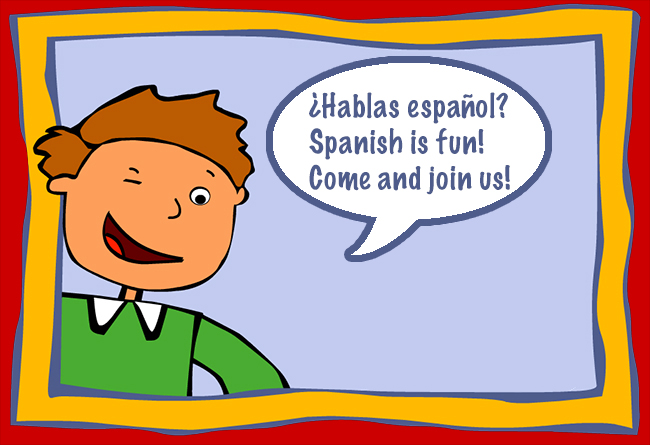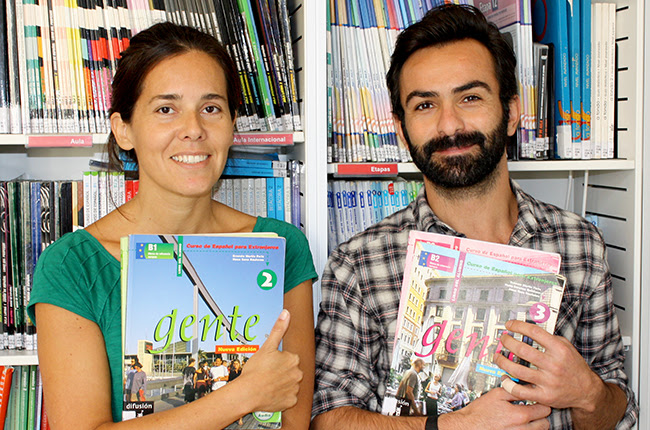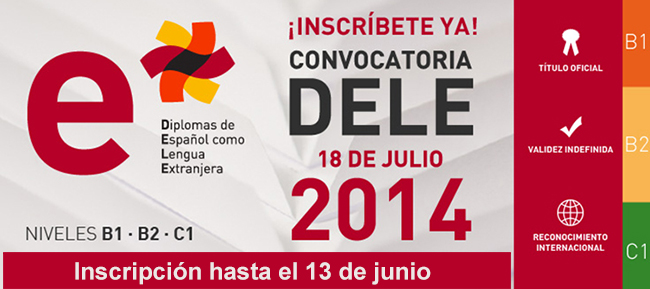¿DE VERDAD SON ASÍ LOS ESPAÑOLES? | ARE THE SPANISH REALLY LIKE THAT?

¿DE VERDAD SON ASÍ LOS ESPAÑOLES?
La tendencia globalizadora creciente en nuestro planeta en los últimos años está haciendo de la migración masiva un hecho cotidiano. Ello se ve especialmente acentuado en el sur de Europa: cada vez más españoles salen al mundo en busca de nuevos retos. Junto a ellos, en el equipaje, viajan también los prejuicios con los que es posible que les reciban sus nuevos vecinos, antes incluso de conocerlos – una situación habitual en cualquier país que reciba a residentes temporales del extranjero. Las etiquetas más habituales, extendidas a menudo también a los ciudadanos de América Central y del Sur, categorizan a los nacidos en España como…
Vagos. El mundo cree a pies juntillas en la España de la siesta y del “mañana, mañana”. Lo cierto es que no es imposible encontrar esta costumbre en la Península durante los meses de verano en los que más españoles descansan del trabajo. Pasar una semana en la costa mediterránea en agosto implica cruzarse con decenas de miles de españoles, provenientes de los cuatro puntos cardinales del país, que están igualmente de vacaciones. Españoles que duermen siesta y no tienen prisa. Sin embargo, durante el resto del año, las cabezaditas clásicas a mediodía no son habituales; las jornadas laborales españolas, de hecho, son más largas que en la mayoría de sus vecinos europeos; las breves pausas de ojos cerrados son un lujo ocasional.
Escandalosos y maleducados. Las culturas latinas del mundo son más cercanas e íntimas que las anglosajonas; la menor distancia física y el contacto habitual se ven con normalidad al sur de la frontera con Estados Unidos, y también con Francia. Para un hispano, el tono de voz elegido transmite su implicación e interés por el tema tratado… cualquiera que sea el grado. Por otro lado, la mirada fija a los ojos del interlocutor es una manera muy española de decir “estoy concentrado en lo que me dices, no te juzgo por tu aspecto exterior”, aunque esto pueda ser percibido en otros países como una invasión de la intimidad y una falta de respeto.
Hablan mal inglés. La fuerte pronunciación españolizada del inglés y los errores gramaticales cometidos ocasionalmente se producen por las interferencias de la lengua materna en el proceso de aprendizaje de la extranjera, hecho que experimentan todos los estudiantes de idiomas en distintas fases. Lo cierto es que el sistema fonológico de un hispanohablante no recoge los fonemas necesarios para comunicarse como un nativo en el entorno anglosajón, y lo mismo ocurre a la inversa. Es costumbre que un inglés se ría de cómo un español arrastra sus erres y haches a principio de palabra y, de la misma manera, al español le hace gracia la incapacidad del inglés de hacerlo en la versión más ‘pura’ de la lengua de Cervantes. Al fin y al cabo, la única lengua que es fácil para todos es su propia lengua.
Históricamente, todas las culturas y naciones acarrean una serie de preconcepciones a medida. Cada una cumple, o no, en algún grado, o no, las características que se le atribuyen. Y el idioma, el factor que da cohesión a las naciones, es la insignia del individuo. Puede que a este no le resulte fácil utilizar cualquier otra lengua que no sea la suya, pero no por ello es menos gratificante ir dando pasos, superando retos, y abriéndose a cada vez más partes del mundo mientras se enfrenta a un idioma nuevo. Si alguna vez te has preguntado cómo es la realidad de esos 450 millones de personas que hablan español en el mundo, en el Instituto Cervantes de Londres puedes encontrar clases presenciales de niveles desde A1 hasta C2, clases online para aprender a tu ritmo, y clases de conversación a partir de B1 si ya dominas la base, quieres practicar sobre el terreno… y conocer de primera mano con qué mitos o realidades sobre los españoles quedarte, y cuáles desechar.
__________________________________________________________
ARE THE SPANISH REALLY LIKE THAT?
The globalization trend, a growing trait of our planet in recent years, is turning mass migration into a routine fact. This is particularly noticeable in Southern Europe: more and more Spaniards are leaving the peninsula every year, and going out into the world in search of new challenges. Their luggage also packs a considerable amount of preconceptions, used by their new neighbours to label them before they even get to know each other – a situation fairly (way too) common in any country where foreigners take up temporary residence. The most popular labels, often applied also to citizens of Central and South America to varying extents, define those born in Spain as…
Lazy. Much of the world is utterly convinced that Spain is the country of siesta, where everyone has a “mañana, mañana” attitude. As a matter of fact, it is not impossible to find this habit on the peninsula during the summer months, when the majority of Spanish people are on a break. To spend a week near the Mediterranean beaches in August means to run into tens of thousands of Spaniards from all over the country, who are also on holiday. They do sleep daily siestas, and are not in a hurry. However, during the rest of the year, siestas are not a common habit. Spanish professionals work longer shifts than the majority of European countries. Managing to nod off briefly is but an occasional luxury.
Noisy and rude. Latin cultures worldwide are more intimate and friendly than Anglo-Saxon cultures; shorter physical distances, as well as frequent physical contact, are seen as a natural part of interaction south of the American -and French- border. A Hispanic person would calibrate the tone and volume of their voice in order to express their interest and involvement in the topic at stake… whichever the degree thereof. On the other hand, looking their conversation partner in the eye is a very Spanish way of saying “I am focused on what you are telling me, I am not judging you on the basis of your external appearance”. This cultural trait, however, can be understood as an invasive and disrespectful habit in other countries.
They speak bad English. The wobbly, typical Spanish pronunciation of English words, and the grammar mistakes dropped in here and there, are the outcome of native language interference in the foreign language learning process, a natural tendency which all language students go through at different stages. Truth be told, a native Spanish speaker will have developed a phonological apparatus without the phonemes needed to communicate like a native speaker in a non-Spanish (namely an Anglo-Saxon) environment, and vice versa. It is usual to find an English person laughing at a Spaniard who rolls their rr and aitch at the beginning of a word. The Spaniard, in turn, finds it funny that the English cannot emulate Cervantes’s mother tongue in its purest sound. At the end of the day, the only language easy to use for anyone is their own language.
All cultures and nations have historically been dealt a set of preconceptions. Each of those cultures or nations may, or may not, present -to some degree, or not- the traits that are being conferred to them. Moreover, language, the element that binds nations together, is an individual’s signature trait. It may not be easy for them to use any other language but their own, but it is incredibly gratifying to take little steps, overcome challenges, and open up to larger portions of the world by facing a new verbal means of communication. If you ever wondered what the reality of 450 million Spanish speakers worldwide is like, you can find out by considering attending Instituto Cervantes London for either face-to-face A1 through C2 classes, or online courses to learn at your own pace and place, or conversation classes from B1 if you mastered the basics and are looking for real-world practice. Thus, you will be able to experience, then decide first-hand, which preconceptions about the Spanish to stick with and which ones to ditch.
Nuevos cursos de formación de profesores de español | Spanish Teacher training courses starting now

El Instituto Cervantes ofrece a los profesores de español de todos los niveles la posibilidad de mejorar su formación regularmente. En estos cursos de formación se actualizan conocimientos didácticos, metodológicos y lingüísticos. Asimismo, los futuros profesores de español pueden realizar estos cursos como preparación para su futura carrera profesional.
Instituto Cervantes offers the possibility of regularly improving teaching techniques to teachers of Spanish of all levels. In these teacher training classes we explore the instructive, methodological and linguistic tricks of the trade. At the same time, future teachers of Spanish can complete these courses and use them as preparation for their future professional career.
Spanish courses for children

Give your child a head start! Courses for school children and Spanish-speaking children.
Children learn languages with little effort and are able to pick up a perfect accent naturally in the right environment. At the Instituto Cervantes in London we offer Spanish classes for children taught by a specialist native Spanish teacher, where children can learn in well-structured yet fun lessons. With languages becoming compulsory at primary level in the English curriculum this is more important than ever.
In addition to this we also have courses for Spanish speaking children, who may need to expand their vocabulary, read and write in Spanish or improve their spelling and grammar. Having to speak and interact in Spanish with other children will help them to become more confident and improve their communication skills.
For details on our Summer Intensive and Autumn regular courses, new days and times, please visit our website. With Spanish courses for children becoming more popular early booking is highly advisable. Private tuition at our premises is also available.
To enrol please contact us on 0207 235 0353.
Aprende español este verano | Spanish summer courses enrol now!

El Instituto Cervantes ofrece cursos de español para estudiantes de todos los niveles, desde principiante absoluto hasta perfeccionamiento (A1 – C2 del MCER), cuyo objetivo es desarrollar la capacidad del alumno de comprender, hablar, leer y escribir en español.
Asimismo ofrece un amplio abanico de cursos específicos, como los cursos por Internet del Aula Virtual de Español (AVE), cursos de preparación del Diploma de Español como Lengua Extranjera (DELE) y de los exámenes de GCSE, AS y A2, español orientado al mundo de los negocios, español para personal médico, traducción, cursos de lengua y cultura (literatura, historia), conversación, bailes latinos, español para niños y cursos de formación de profesores ELE. Otros cursos fuera de programa y clases particulares y en empresas también están disponibles.
Para más información visite nuestra página web www.londres.cervantes.es o contacte con la oficina de matriculación de lunes a sábado llamando al 0207 235 0353.
The Instituto Cervantes offers Spanish language courses for all levels, from complete beginners to proficiency (A1 – C2 of the CEFR), aimed at developing the students’ ability to understand, speak, read and write in Spanish.
We also offer a wide range of more specific courses such as online courses (AVE), courses to prepare for the DELE Spanish official exams, GCSE, AS and A2 levels, general business Spanish, Spanish for medical professionals, translation, language & culture (literature, history), conversation courses, Latin dance, Spanish for children and teacher training courses. Other courses and private and corporate tuition are available on demand.
For full details please visit our website www.londres.cervantes.es or contact the Enrolment Office, Monday to Saturday, on 0207 235 0353.
DELE registration deadline Friday 13 June
DIPLOMAS DE ESPAÑOL COMO LENGUA EXTRANJERA (DELE). ÚLTIMO DÍA DE INSCRIPCIÓN VIERNES 13 DE JUNIO
Los Diplomas de Español como Lengua Extranjera (DELE) son títulos oficiales, acreditativos del grado de competencia y dominio del idioma español, que otorga el Instituto Cervantes en nombre del Ministerio de Educación, Cultura y Deporte de España. Los exámenes DELE están diseñados siguiendo las directrices del Marco común europeo de referencia (MCER) del Consejo de Europa.
Para inscribirse debe enviar la documentación necesaria a aclon1@cervantes.es y llamar al 0207 235 0353 para efectuar el pago.
DIPLOMAS IN SPANISH AS A FOREIGN LANGUAGE (DELE). LAST DAY TO REGISTER FRIDAY 13 JUNE
The Diplomas in Spanish as a Foreign Language (DELE) are official qualifications certifying the degree of competence and mastery of Spanish, granted by Instituto Cervantes on behalf of the Ministry of Education, Culture and Sport of Spain.The DELE examinations have been designed following the guidelines of the Common European Framework of Reference for Languages (CEFR) of the Council of Europe.
To register please send the necessary documents to aclon1@cervantes.es and contact us on 0207 235 0353 to process the payment.
Cursos de español | Spanish courses starting very soon… Enrol Now!

El Instituto Cervantes ofrece cursos de español para estudiantes de todos los niveles, desde principiante absoluto hasta perfeccionamiento (A1 – C2 del MCER), cuyo objetivo es desarrollar la capacidad del alumno de comprender, hablar, leer y escribir en español.
Asimismo ofrece un amplio abanico de cursos específicos, como los cursos por Internet del Aula Virtual de Español (AVE), cursos de preparación del Diploma de Español como Lengua Extranjera (DELE) y de los exámenes de GCSE, AS y A2, español orientado al mundo de los negocios, español para personal médico, traducción, cursos de lengua y cultura (literatura, historia, viajes), conversación, bailes latinos, español para niños y cursos de formación de profesores ELE. Otros cursos fuera de programa y clases particulares y en empresas también están disponibles.
Para más información visite nuestra página web www.londres.cervantes.es o contacte con la oficina de matriculación de lunes a sábado llamando al 0207 235 0353.
The Instituto Cervantes offers Spanish language courses for all levels, from complete beginners to proficiency (A1 – C2 of the CEFR), aimed at developing the students’ ability to understand, speak, read and write in Spanish.
We also offer a wide range of more specific courses such as online courses (AVE), courses to prepare for the DELE Spanish official exams, GCSE, AS and A2 levels, general business Spanish, Spanish for medical professionals, translation, language & culture (literature, history, travel), conversation courses, Latin dance, Spanish for children and teacher training courses. Other courses and private and corporate tuition are available on demand.
For full details please visit our website www.londres.cervantes.es or contact the Enrolment Office, Monday to Saturday, on 0207 235 0353.
New course ! Act Spanish and improve your Confidence – March and May 2014
New course! Starting on Sunday 2nd March at Instituto Cervantes
The aim of this course is to provide a friendly creative and fun environment in which to learn and practice speaking Spanish. We use theater and drama techniques including improvisation, role play and games to act out real-life situations. In this way, we concentrate less on the mechanics of grammar and more on extending your vocabulary and building your confidence when speaking Spanish in the real world. Level : Intermediate and Advance (B1/B2)
Sundays from 11:00 – 13:00h
DATES:
· From 2nd March to 23th March (4 weeks; 8 hours)
· From 4th May to 25th May(4 weeks; 8 hours)
Full fee: £92
To register for the course please contact us:
Tel: 020 7235 0353 102 Eaton Square, London, Greater London SW1W 9AN
Cursos intensivos de español en febrero y marzo | Intensive Spanish courses in February and March

Cursos para los que quieren aprovechar al máximo la experiencia de aprender español. Estos cursos se ofrecen con regularidad en el mismo horario a lo largo del año. Tienen una duración de 30 horas y pueden realizarse en una semana (cursos crash), dos semanas (cursos intensivos) o 6 semanas (semi-intensivos, dos veces por semana).
For those who want to immerse themselves in the Spanish experience. These courses are offered regularly throughout the year. They are 30 hours long and can be taken in a week (crash courses), two weeks (intensive courses) or 6 weeks (semi-intensive, twice a week).
Cursos de español | Spanish courses starting right now!

El Instituto Cervantes ofrece cursos de español para estudiantes de todos los niveles, desde principiante absoluto hasta perfeccionamiento (A1 – C2 del MCER), cuyo objetivo es desarrollar la capacidad del alumno de comprender, hablar, leer y escribir en español.
Asimismo ofrece un amplio abanico de cursos específicos, como los cursos por Internet del Aula Virtual de Español (AVE), cursos de preparación del Diploma de Español como Lengua Extranjera (DELE) y de los exámenes de GCSE, AS y A2, español orientado al mundo de los negocios, español para personal médico, traducción, cursos de lengua y cultura (literatura, historia, viajes), conversación, bailes latinos, español para niños y cursos de formación de profesores ELE. Otros cursos fuera de programa y clases particulares y en empresas también están disponibles.
Para más información visite nuestra página web www.londres.cervantes.es o contacte con la oficina de matriculación de lunes a sábado llamando al 0207 235 0353.
The Instituto Cervantes offers Spanish language courses for all levels, from complete beginners to proficiency (A1 – C2 of the CEFR), aimed at developing the students’ ability to understand, speak, read and write in Spanish.
We also offer a wide range of more specific courses such as online courses (AVE), courses to prepare for the DELE Spanish official exams, GCSE, AS and A2 levels, general business Spanish, Spanish for medical professionals, translation, language & culture (literature, history, travel), conversation courses, Latin dance, Spanish for children and teacher training courses. Other courses and private and corporate tuition are available on demand.
For full details please visit our website www.londres.cervantes.es or contact the Enrolment Office, Monday to Saturday, on 0207 235 0353.
New course ! Act Spanish and improve your Confidence – February 2014
Act Spanish and improve your Confidence
New course! Starting on Saturday 1st of February 2014 at the Instituto Cervantes
The aim of this course is to provide a friendly creative and fun environment in which to learn and practice speaking Spanish. We use theatre and drama techniques including improvisation, role play and games to act out real-life situations. In this way, we concentrate less on the mechanics of grammar and more on extending your vocabulary and building your confidence when speaking Spanish in the real world. Level : Intermediate and Fluency Speakers
Saturdays from 12:00 – 14:00h
Dates: from 1st February to 22 February 2014 (4 weeks; 10 hours)
Full fee: £92 (5% discount for students enrolled in the last two terms)
To register for the course please contact us:
Tel: 020 7235 0353 102 Eaton Square, London, Greater London SW1W 9AN
http




